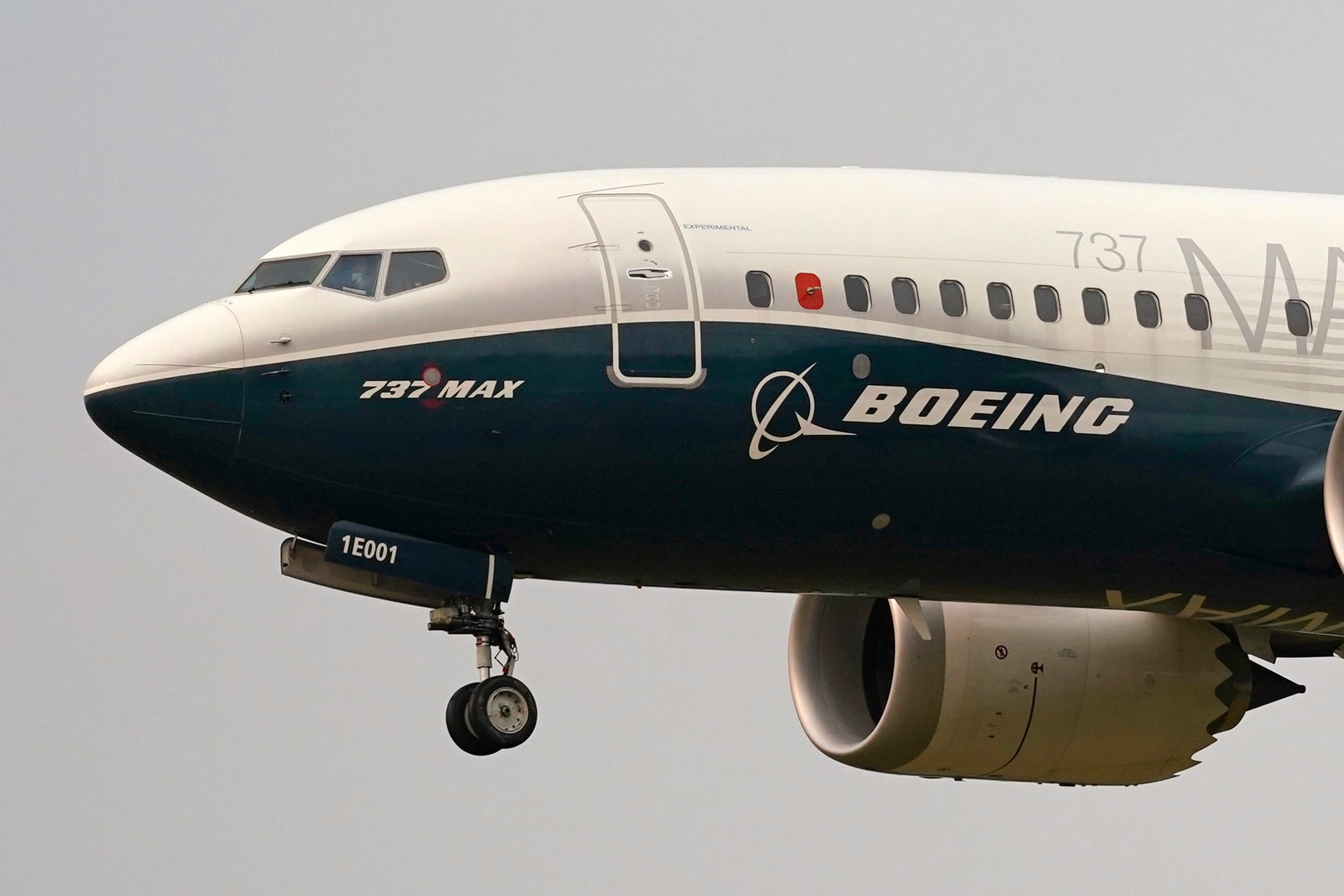Report: FAA overruled engineers, let Boeing Max keep flying
A new report says some engineers for the Federal Aviation Administration wanted to ground the Boeing 737 Max soon after a second deadly crash, but were overruled by higher-ups at the FAA

Your support helps us to tell the story
From reproductive rights to climate change to Big Tech, The Independent is on the ground when the story is developing. Whether it's investigating the financials of Elon Musk's pro-Trump PAC or producing our latest documentary, 'The A Word', which shines a light on the American women fighting for reproductive rights, we know how important it is to parse out the facts from the messaging.
At such a critical moment in US history, we need reporters on the ground. Your donation allows us to keep sending journalists to speak to both sides of the story.
The Independent is trusted by Americans across the entire political spectrum. And unlike many other quality news outlets, we choose not to lock Americans out of our reporting and analysis with paywalls. We believe quality journalism should be available to everyone, paid for by those who can afford it.
Your support makes all the difference.Some engineers for the Federal Aviation Administration wanted to ground the Boeing 737 Max soon after a second deadly crash, but top officials in the agency overruled them, according to a government watchdog.
The inspector general of the Transportation Department said in a new report that FAA officials wanted to sort out raw data about the two crashes, and held off grounding the plane despite growing international pressure.
The inspector general’s office said that it reviewed emails and interviewed FAA officials. The investigation “revealed that individual engineers at the Seattle (office) recommended grounding the airplane while the accident was being investigated based on what they perceived as similarities between the accidents.”
One engineer made a preliminary estimate that the chance of another Max crash was more than 13 times greater than FAA risk guidelines allow. An FAA official said the analysis "suggested that there was a 25% chance of an accident in 60 days" if no changes were made to the planes.
“However, this document was not completed and did not go through managerial review due to lack of detailed flight data,” the report said.
FAA officials at headquarters in Washington, D.C., and the agency's Seattle office opted not to ground the plane. “Instead, they waited for more detailed data to arrive,” the watchdog said in the report, which was made public Friday.
The first Max crash occurred in October 2018 in Indonesia and was followed by the second in March 2019 in Ethiopia. In all, 346 people died.
The FAA was the last major aviation regulator to ground the Max — three days after the second crash.
The FAA did not let the planes fly again until late 2020, after Boeing altered a flight-control system that autonomously pointed the plane's nose down before both crashes.
The inspector general’s office said the FAA’s caution on grounding the Max fit with its tendency of waiting for detailed data – an explanation that agency officials offered at the time.
Still, the watchdog recommended that FAA document how key and urgent safety decisions are made and make several other changes in how it analyzes crashes.
The FAA said in a response attached to the inspector general’s report that it is committed to measures that will improve safety and has started to update procedures based on the Max tragedies.
In a statement to The Associated Press, the FAA said it concurs with the inspector general’s recommendations and had already identified the issues outlined in the report.
Safety advocates and lawmakers have harshly criticized the FAA for its decision to certify the Max — FAA officials did not fully understand the flight-control system implicated in both crashes. Congress passed legislation to reform the process of reviewing new aircraft.